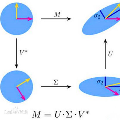The drive for personalization in recommender systems creates a tension between user privacy and the risk of "filter bubbles". Although federated learning offers a promising paradigm for privacy-preserving recommendations, its impact on diversity remains unclear. We introduce FedFlex, a two-stage framework that combines local, on-device fine-tuning of matrix factorization models (SVD and BPR) with a lightweight Maximal Marginal Relevance (MMR) re-ranking step to promote diversity. We conducted the first live user study of a federated recommender, collecting behavioral data and feedback during a two-week online deployment. Our results show that FedFlex successfully engages users, with BPR outperforming SVD in click-through rate. Re-ranking with MMR consistently improved ranking quality (nDCG) across both models, with statistically significant gains, particularly for BPR. Diversity effects varied: MMR increased coverage for both models and improved intra-list diversity for BPR, but slightly reduced it for SVD, suggesting different interactions between personalization and diversification across models. Our exit questionnaire responses indicated that most users expressed no clear preference between re-ranked and unprocessed lists, implying that increased diversity did not substantially reduce user satisfaction.
翻译:暂无翻译




